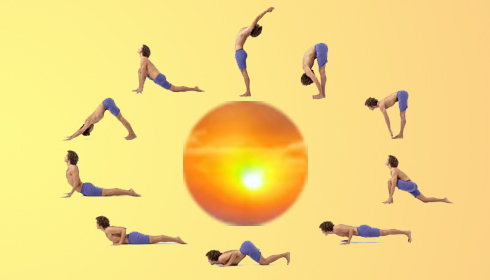
Doing yoga at home can reduce anxiety, improve short-term memory, finds study
A new study published in the Journal of Behavioral Medicine recently and undertaken by researchers from the Department of Kinesiology and Community Health at the University of Illinois Urbana-Champaign and Beckman Institute for Advanced Science and Technology found that the participants after exercising for eight weeks, there was a significant reduction in anxiety level among the participants in the yoga group, compared to controls thereby indicating that doing moderate yoga movements at home daily can reduce anxiety and improve short-term memory.
Commenting about their study, Sean Mullen, an associate professor in the Department of Kinesiology and Community Health at the University of Illinois Urbana-Champaign, who collaborated with fellow Beckman Institute for Advanced Science and Technology researchers Madhura Phansikar, Neha Gothe, and Rosalba Hernandez to design a virtual eight-week moderate-intensity yoga program geared toward full-time working adults experiencing symptoms of stress, said, “There is some literature that has directly compared yoga to aerobic exercise, and we have known for quite a long time that aerobic exercise has benefits for the brain.”
“Our research investigates complex movements, not just riding a bicycle or walking in a straight line, but multi-planar movements that require navigating one’s space a little differently and being conscious of movement, technique, and breathing,” he added.
The research team developed self-paced instructional videos for guiding participants through sun salutations in the comfort of their homes, encouraging the participants to gradually become more self-sufficient by completing the exercises independently.
“Our philosophy is to improve everyone’s confidence about the exercise in which they are engaging,” Mullen said. “We start slow and incrementally progress.”
The researchers wanted to investigate if learning new chains of yoga sequences could improve working memory in the same way that learning a new dance could.
“Having to move through multiple active postures, as opposed to static holds, should theoretically improve attentional abilities or inhibition control,” Mullen said.
“Going through the flow could potentially improve spatial memory,” he added.
The researchers said that the findings of their study support the benefits of executive functioning demonstrated in the study.
Though the study attempted to look into people's adherence to a virtual workout programme and was originally intended for remote execution, the gave extra insight.
“The reductions in anxiety and improvements in short-term working memory suggest that it is possible to practice moderate-intensity yoga at home and still reap the benefits of reducing stress and anxiety without compromising safety,” Mullen said. “[The study] became about promoting resilience in dark times.”